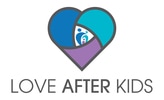I have known many sorrows, most of which never happened. - Mark Twain
Why we limit our possibilities
Our brains are hardwired to look for patterns in order to simplify and classify what we encounter. When hurtful things happen, we anticipate the wounding behavior of others to protect ourselves from possible future wounds. We imagine others are thinking and feeling things about us that correspond to the wounding event(s). We start to organize our behavior around avoiding possible triggers, overcompensating by acting in the opposite way or surrendering to it. Our expectations contribute to co-creating future interactions that corroborate our assumptions.
The fascinating thing about this process is that most of it takes place in our own heads and outside of our conscious awareness.
The trance of unworthiness
Tim was raised by a narcissistic mother and a father who withdrew much of his affection when he divorced Tim’s mother after discovering she had multiple affairs. Tim felt unloved and defective growing up. As an adult, he struggled with his self-esteem and in maintaining friendships and romantic relationships.
Tim’s formative experiences led him to believe that he was flawed and to expect others to reject him and confirm this bias. As a result, he ended up acting in ways that invited rejection. He was aggressive, judgmental, and avoidant. All of his behaviors were self-protective. All were unconscious with respect to why he was behaving the way he was behaving.
When I asked Tim about his interactions, he often told me all the reasons why different people were flawed and weren’t worth maintaining friendships with.
The danger of assumptions in relationships
Carlos Castañeda, the Peruvian-born American anthropologist, and writer said:
We talk to ourselves incessantly about our world. In fact we maintain our world with our internal talk. And whenever we finish talking to ourselves about ourselves and our world, the world is always as it should be. We renew it, we rekindle it with life, we uphold it with our internal talk. Not only that, but we also choose our paths as we talk to ourselves. Thus we repeat the same choices over and over until the day we die, because we keep on repeating the same internal talk over and over until the day we die.
Letting go
The only thing I really know is that I know nothing. - Socrates
If you haven’t already read the book, it’s a great place to start - Relationship Reboot: Break free from the bad habits in your relationship.
David B. Younger, Ph.D. is the creator of Love After Kids, for couples that have grown apart since having children. He is a clinical psychologist and couples therapist with a web-based private practice and lives in Austin, Texas with his wife, 13-year-old son, 4-year-old daughter and 6-year-old toy poodle.

 RSS Feed
RSS Feed